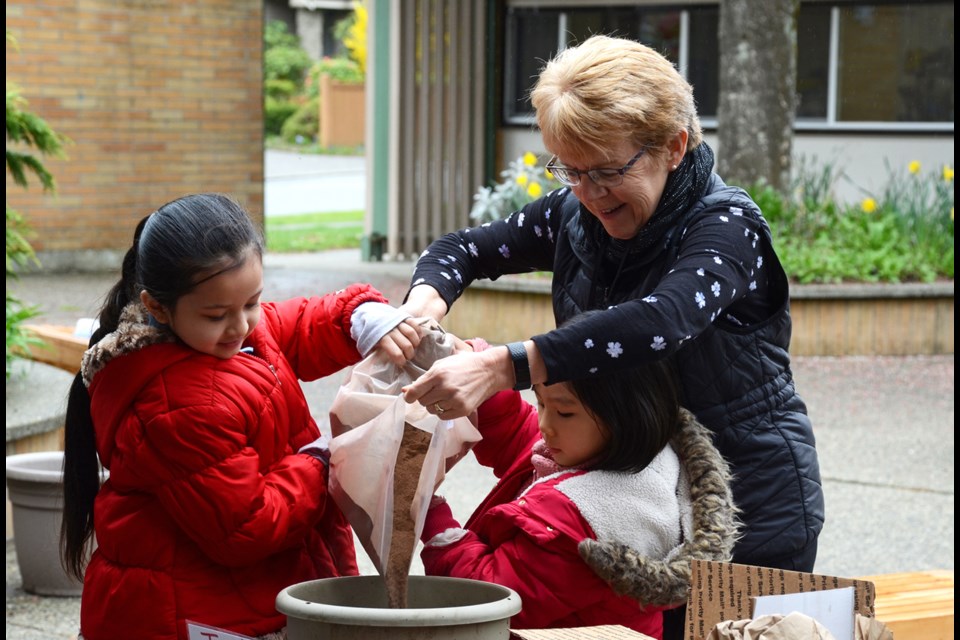Mars colonization might still be a few years away, but a group of New Westminster students are getting a jump on what life on the red planet might be like.
Over the next few months, Kindergarten and Grade 1 students at Connaught Heights Elementary School will track the growth of strawberry plants planted in simulated Mars soil. They’ll compare the plants’ progress to other strawberries planted in regular Earth soil.
The objective? To see if the strawberries planted in the Mars soil grow and if they do, do they grow as well as those planted in regular soil?
The experiment was inspired by Kindergarten/Grade 1 teacher Kelly Cannon. Her son, Kevin, is a postdoctoral scholar who works at the University of Central Florida’s Exolith lab where a group of researchers have used data collected by the Curiosity rover to come up with a recipe to create simulated Mars soil here on Earth.
“When he came home at Christmas he was telling me about it and he was telling me about how they were sending it around the world, and he said ‘you should get some for your school,’” Cannon said.
Cannon thought it was a great idea so she pitched it to her colleague Lori Wong, who teaches the Montessori Kindergarten class at Connaught. Together they often do gardening projects with their students, so this seemed like a perfect fit.
“They seemed pretty excited,” she said. “After school, quite a few of them dragged their parents over to show their parents.
“Space is such a fun topic for them.”
The soil costs about USD$25 a kilogram. Wong and Cannon bought about $200 worth using money Wong received from a grant from Farm to School BC.
Cannon said the students will continue to tend to the plants until about June, when they should start producing ripe fruit.
“Probably within a month they should have flowers on them, if they’re going to,” she said. “If we have a hot, dry spell we’re out there every day watering our plants.”



